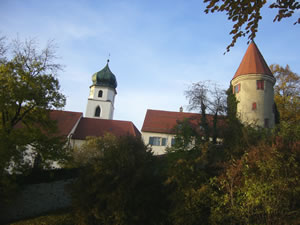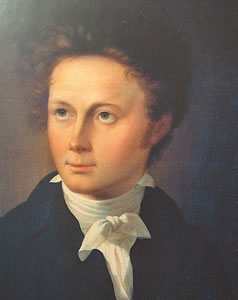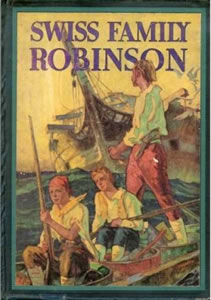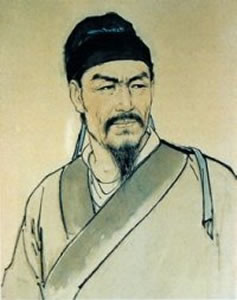De Britse schrijver Ian Fleming werd geboren op 28 mei 1908 in Londen. Zie ook mijn blog van 28 mei 2007 en ook mijn blog van 28 mei 2009.
Uit: Live and Let Die
‘You’re very welcome, Mr Bond.’ Halloran smiled and offered him a cigarette from a fresh pack of Luckies. ‘We want to make your stay comfortable. Anything you want, just say so and it’s yours. You’ve got some good friends in Washington. I don’t myself know why you’re here but it seems the authorities are keen that you should be a privileged guest of the Government. It’s my job to see you get to your hotel as quickly and as comfortably as possible and then I’ll hand over and be on my way. May I have your passport a moment, please.’
Bond gave it to him. Halloran opened a briefcase on the seat beside him and took out a heavy metal stamp. He turned the pages of Bond’s passport until he came to the US Visa, stamped it, scribbled his signature over the dark blue circle of the Department of Justice cypher and gave it back to him. Then he took out his pocket-book and extracted a thick white envelope which he gave to Bond.
‘There’s a thousand dollars in there, Mr Bond.’ He held up his hand as Bond started to speak. ‘And it’s Communist money we took in the Schmidt-Kinaski haul. We’re using it back at them and you are asked to co-operate and spend this in any way you like on your present assignment. I am advised that it will be considered a very unfriendly act if you refuse. Let’s please say no more about it and,’ he added, as Bond continued to hold the envelope dubiously in his hand, ‘I am also to say that the disposal of this money through your hands has the knowledge and approval of your own Chief.’
Bond eyed him narrowly and then grinned. He put the envelope away in his notecase.
‘All right,’ he said. ‘And thanks. I’ll try and spend it where it does most harm. I’m glad to have some working capital. It’s certainly good to know it’s been provided by the opposition.’
‘Fine,’ said Halloran; ‘and now, if you’ll forgive me, I’ll just write up my notes for the report I’ll have to put in. Have to remember to get a letter of thanks sent to Immigration and Customs and so forth for their co-operation. Routine.’

Ian Fleming (28 mei 1908 – 12 augustus 1964)
Fleming hier met Sean Connery (l)
De Franse schrijver, journalist en verzamelaar Henri-Pierre Roché werd op 28 mei 1879 geboren te Parijs. Zie ook mijn blog van 28 mei 2009.
Uit: Jules et Jim
“-Vous avez aimé, Jim. Pour de bon, Jim. Cela se sent. Pourquoi ne l’avez-vous pas épousée?
-Cela n’est pas arrivé.
-Où est-elle ?
-En France
Comment est-elle ?
-Pure, elle aussi.
Jim sentit une pression du bras de Lucie.
-Vous l’aimez encore, et elle vous aime ?
-Oui, mais nous nous
voyons peu, bien que nous soyons libres.
-Ne faites pas souffrir, Jim…
-Et puis, il y a du nouveau.
-Lequel ?
-Je vous admire, Lucie. J’ai pris gout à vous voir. Je crains d’oublier Jules.
-Il ne faut pas l’oublier, il faut le prévenir.
[…]
L’été tourna vite. Jules fit sa demande à Lucie, ajoutant que, quelle que fût sa réponse, il resterait toujours à sa merci. Lucie lui dit qu’elle était touchée, qu’elle ne pourrait probablement jamais l’épouser, et qu’elle souhaitait que leur grande amitié n’en souffrît pas.
Jules, qui s’y attendait pourtant, devint blanc, lui baisa les mains, et vint trouver Jim.
-Jim, dit-il, Lucie ne veut pas de moi. J’ai la terreur de la perdre et qu’elle sorte tout à fait de ma vie. Jim, aimez-la, épousez-la, et laissez-moi la voir. Je veux dire : si vous l’aimez, cessez de penser que je suis un obstacle. “

Henri-Pierre Roché (28 mei 1879 – 9 april 1959)
Scene uit de film Jules et Jim van François Truffaut
De Russische dichter, schrijver en schilder Maximilian Voloshin werd geboren op 28 mei 1877 in Kiev. Zie ook mijn blog van 28 mei 2009.
Koktebel
As in the tiny shell – the Ocean
With mighty breathing hums, concealed inside,
As flesh of her is flickering and burns
With silver shimmer of the air of foggy,
And curvatures of her reiterate
Their look in movements and in curls of waves, –
So in your harbors my entire soul,
Oh Cimmerian country dark of mine,
Is captivated and transfigured truly.
Since being adolescent by the silent
The solemn, godforsaken shores
I woke up – my soul opened widely,
And thought was grown up and shaped, and sculptured
On folds of rocks, on curvatures of hills,
The fire of the depths and rainy moisture
With double chisel your appearance built –
Monotonous formation of the hills
And strain of Kara-Dag’s intensive pathos.
Indented concentration of the rocks
Along with prairies and flickering expances
Gave freedom to my verse and measure to my thought.
Since then are saturated with my dreams
Heroic reveries of drowsing foothills
And stone mane of wistful Koktebel;
His wormwood’s getting drunken with my pang,
My verse is singing in the surging ocean,
And on the rock, enclosing rippled harbor,
By fate and wind is sculptured my profile.
Vertaald door I. Larkov

Maximilian Voloshin (28 mei 1877 – 11 augustus 1932)
Buste in de studeerkamer van Voloshins huis in Koktebel
De Duitse dichteres en schrijfster Maria Müller-Gögler werd geboren op 28 mei 1900 in Leutkirch im Allgäu. Zie ook mijn blog van 28 mei 2009.
Willkommen
Die Liebe hat dich hergerufen,
und Liebe gibt dir das Geleit.
Sie stützt dich auf den ersten Stufen
des schweren Weges durch die Lebenszeit,
bleibt später auch an deiner Seite,
stärkt dich noch mehr als Milch und Brot.
Auch in der ungeschützten Weite
hilft sie bestehen, was dich fremd umdroht.
Du bist in eine Zeit geboren,
vor deren Zeichen manchem bangt,
der seine Zuversicht verloren,
weil er im Glauben an die Liebe wankt.
Er ängstigt sich vielleicht gleich scheuen,
verfolgten Tieren in der Nacht.
Du fürchtest nichts, du darfst dich freuen,
weil deiner Eltern Liebe dich bewacht.

Maria Müller-Gögler (28 mei 1900 – 23 september 1987)
Leutkirch im Allgäu (Geen portret beschikbaar)
De Deense dichter en schrijver Bernhard Severin Ingemann werd geboren op 28 mei 1789 in Thorkildstrup op het eiland Falster. Zie ook mijn blog van 28 mei 2009.
Uit: The Sealed Room
„Madame Wolff had in vain endeavored to avoid using the great hall at all, for the foolish old legend of the sealed chamber aroused a certain superstitious dread in her heart, and she rarely if ever entered the hall herself. But merry Miss Elizabeth, her pretty young daughter, was passionately fond of dancing, and her mother had promised that she should have a ball on her wedding day. Her betrothed, Secretary Winther, was also a good dancer, and the two young people combated the mother’s prejudice against the hall and laughed at her fear of the sealed room. They
thought it would be wiser to appear to ignore the stupid legend altogether, and thus to force the world to forget it. In spite of secret misgivings Madame Wolff yielded to their arguments. And for
the first time in many years the merry strains of dance music were heard in the great hall that lay next the mysterious sealed chamber.
The bridal couple, as well as the wedding guests, were in the gayest mood, and the ball was an undoubted success. The dancing was interrupted for an hour while supper was served in an adjoining
room. After the repast the guests returned to the hall, and it was several hours more before the last dance was called. The season was early autumn and the weather still balmy. The windows had been
opened to freshen the air. But the walls retained their dampness and suddenly the dancers noticed that the old wall paper which covered the partition wall between the hall and the sealed chamber
had been loosened through the jarring of the building, and had fallen away from the sealed door with its mysterious inscription.“

Bernhard Severin Ingemann (28 mei 1789 – 24 februari 1862)
Portret door A. I. Koop, 1822
De Zwitserse schrijver Johann David Wyss werd geboren op 28 mei 1743 in Bern. Zie ook mijn blog van 28 mei 2009.
Uit: The Swiss Family Robinson
“Amid the roar of the thundering waves I suddenly heard the cry of “Land, land!” while at the same instant the ship struck with a frightful shock, which threw everyone to the deck and seemed to threaten her immediate destruction.
Dreadful sounds betokened the breaking up of the ship, and the roaring waters poured in on all sides:
Then the voice of the captain was heard above the tumult shouting, “Lower away the boats! We are lost!”
“Lost!” I exclaimed, and the word went like a dagger to my heart; but seeing my children’s terror renewed, I composed myself, calling out cheerfully, “Take courage, my boys! We are all above water yet. There is the land not far off; let us do our best to reach it. You know God helps those that help themselves!” With that, I left them and went on deck. What was my horror when through the foam and spray I beheld the only remaining boat leave the ship, the last of the seamen spring into her and push off, regardless of my cries and entreaties that we might be allowed to share their slender chance of preserving their lives. My voice was drowned in the howling of the blast; and even had the crew wished it, the return of the boat was impossible.
Casting my eyes despairingly around, I became gradually aware that our position was by no means hopeless, inasmuch as the stern of the ship containing our cabin was jammed between two high rocks, and was partly raised from among the breakers which dashed the fore part to pieces. As the clouds of mist and rain drove past, I could make out, through rents in the vaporous curtain, a line of rocky coast, and rugged as it was, my heart bounded toward it as a sign of help in the hour of need. Yet the sense of our lonely and forsaken condition weighed heavily upon me as I returned to my family, constraining myself to say with a smile, “Courage, dear ones! Although our good ship will never sail more, she is so placed that our cabin will remain above water, and tomorrow, if the wind and waves abate, I see no reason why we should not be able to get ashore.”

Johann David Wyss (28 mei 1743 – 11 januari 1818)
Een van de uitgaven van The Swiss Family Robinson
De Oostenrijkse schrijver Cornelius Hermann von Ayrenhoff werd geboren op 28 mei 1733 in Wenen. Zie ook mijn blog van 28 mei 2009.
Uit: Virginia oder das abgeschaffte Decemvirat
„MARCUS.
Bald, Lucius, entweicht mir die Geduld.
So lange weilt kein Flamen in dem Tempel
wie dieses Mädchen.
LUCIUS.
Wahr! – Nun schließe, Freund,
von Deiner Ungeduld auf die, die jetzt
des Appius Erwartung spannt! Sein Herz
scheint ein Vulkan entflammter Leidenschaft.
Kaum war es Mitternacht, so ließ er schon
mich rufen, daß ich ja dich früh genug
zur That ermahnte, früh genug ihm dann
vom Ausschlag Nachricht brächte.
MARCUS.
Sollte denn
Verhaftung eines Weibs, noch beynah Kinds,
ein Werk von ungewissem Ausschlag seyn?
LUCIUS.
Selbst diese Furcht des Allgewaltigen
verräth die Stärke seiner Leidenschaft.
Doch Marcus – oft vernahm ich von dir selbst,
in deiner Lälia getreuen Brust
herrsch’ Eifersucht mit unzähmbarer Macht:
wird sie wohl ruhig sehn, daß du das schönste
von allen Mädchen Roms nach Hause bringest?

Cornelius Hermann von Ayrenhoff (28 mei 1733 – 15 augustus 1819)
Wenen (Geen portret beschikbaar)
De Chinese dichter Xin Qiji werd geboren op 28 mei 1140 in Jinan, in de provicie Shandong. Zie ook mijn blog van 28 mei 2009.
Lines Written on a Wall of Dongliu Village
Wild pear blossoms start falling again,
so soon, the Qingming festival over.
The cruel eastern wind, for no reason,
interrupts a traveler’s dream.
I awake, the brocade curtain
devastatingly cold. Once,
she held the drink to me
on the winding river bank,
and we
bade farewell to each other
under a weeping willow tree
with my horse tethered to it.
Now, the pavilion deserted,
there is no trace of her,
only the swallows twittering about bygones.
She’s been seen, people say,
east of the bustling thoroughfare,
behind the curtain, still as graceful
as the new moon. Old regrets
run like the endless spring water. New griefs
pile up like the clouds over the mountains.
If we were going to meet again,
at a banquet, to tell her all this
would be impossible
as to pluck the flower from a mirror.
She would say, perhaps,
“How white your hair has grown!”
Vertaald door Qiu Xiaolong

Xin Qiji (28 mei 1140 – 1207)
